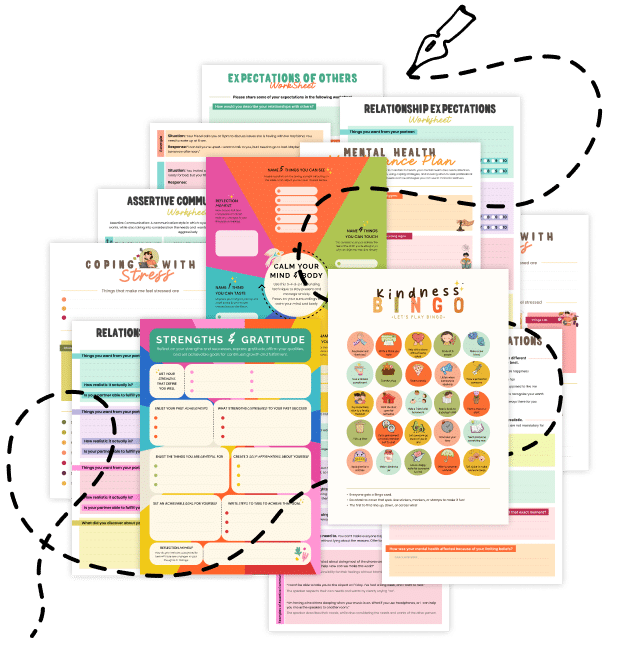20 Things About Self-Hypnosis for Concentration
Discover how self-hypnosis can sharpen your focus, reduce distractions, and boost productivity. Explore 20 essential insights on using self-hypnosis techniques to enhance concentration and mental clarity.
1. What Is Self-Hypnosis?
Self-hypnosis is a process of guiding yourself into a highly focused, relaxed state—similar to a trance—where your mind becomes more open to suggestions. This state can be harnessed to improve concentration and mental performance.
2. The Mind-Body Connection
By calming your mind and relaxing your body, self-hypnosis aligns your mental state with your goals. As you enter a deeply focused trance, unwanted distractions fade, paving the way for sustained attention.
3. Why It Works for Concentration
When you’re hypnotized, your brain waves slow down, and you become more receptive to positive suggestions. This openness allows you to program your mind to stay focused on a task or goal without succumbing to external stimuli.
4. A Complementary Technique
Self-hypnosis for concentration isn’t a cure-all—it’s a complementary approach that pairs well with other strategies like time-blocking, mindfulness, or the Pomodoro Technique to enhance productivity.
5. Setting the Stage
A quiet, comfortable environment helps you enter a hypnotic state more easily. Soft lighting, minimal distractions, and a relaxed posture are key to creating the right ambiance.
6. The Basic Steps
- Relax: Close your eyes and take slow, deep breaths.
- Focus: Direct your attention inward, clearing your mind of immediate worries.
- Induce Trance: Repeat calming phrases or count down, feeling yourself becoming deeply relaxed.
- Suggest: Introduce statements like, “I concentrate fully on my tasks,” or “I remain calm and focused.”
- Return Gradually: Count up or gently guide yourself back to full awareness.
7. Role of Affirmations
Positive affirmations—such as “My mind is clear and focused”—help replace self-doubt or wandering thoughts. Their effectiveness is amplified in a hypnotic state, planting seeds of concentrated thinking.
8. Short Sessions for Quick Boosts
Self-hypnosis sessions can be brief—5 to 10 minutes—yet still deliver noticeable benefits. These micro-sessions fit easily into busy schedules, providing a quick mental reset.
9. Consistency Is Key
Regular practice enhances results. By making self-hypnosis a part of your routine—daily or multiple times a week—you reinforce your mind’s capacity for deeper concentration.
10. Self-Hypnosis vs. Meditation
While both involve relaxation and focused attention, meditation typically emphasizes observing thoughts without judgment. Self-hypnosis, on the other hand, uses intentional suggestions to direct your mind toward a specific goal, such as concentration.
11. Overcoming Initial Skepticism
You don’t need to be a “believer” in hypnosis for it to work. Approaching self-hypnosis with an open mind and willingness to experiment can lead to surprising improvements in focus.
12. Checking Your Readiness
If you’re anxious, rushed, or surrounded by distractions, entering a hypnotic state might be challenging. It helps to schedule sessions during calmer parts of the day—mornings or late evenings.
13. Avoiding Unrealistic Expectations
Self-hypnosis isn’t instant magic. You might not see dramatic changes after the first session. Gradual improvements in concentration and reduced mind-wandering often become evident over multiple sessions.
14. Pairing with Physical Cues
Using props like soothing music, aromatherapy, or a designated cushion can help your brain associate these cues with deep relaxation and focused states.
15. Tapping into Visualization
Once in a trance, visualize yourself engrossed in your work or study. Picture a scenario where distractions bounce off a mental shield, reinforcing the idea that you can stay absorbed in the task at hand.
16. The Role of Post-Hypnotic Suggestions
Self-hypnosis often includes post-hypnotic suggestions—statements that remain active once you’re out of the trance. For example: “Whenever I sit at my desk, I effortlessly focus on my tasks.”
17. Handling Interruptions
If you’re interrupted during a session, calmly note the interruption, then gently guide yourself back. With practice, brief disruptions won’t derail your hypnotic state or the concentration benefits you gain.
18. Integrating with Stress Reduction
Self-hypnosis naturally lowers stress by promoting deep relaxation. A mind free from stress is more receptive to focusing cues, creating a powerful synergy between relaxation and concentration.
19. Overcoming Plateaus
If you plateau or find the technique less effective, try experimenting with different scripts, changing the length of sessions, or seeking professional advice to refresh your approach.
20. Related Topics to Explore
- Mindfulness Meditation: Comparing meditative focus with hypnotic trance.
- Cognitive Defusion: Learning to separate unhelpful thoughts from your core focus.
- Micro-Pomodoros: Pairing short bursts of concentration with hypnosis for quick productivity boosts.
- Neurobics: Brain exercises that challenge and diversify sensory input for mental agility.
Quick Tips for Self-Hypnosis for Concentration
- Plan a Consistent Time: Schedule brief sessions during calm parts of the day.
- Use Guided Recordings: Pre-record your own script or find guided audio for focused concentration.
- Keep It Short and Sweet: Start with 5- to 10-minute sessions to build a comfortable routine.
- Track Progress: Notice improvements in how long you can concentrate, and adjust your approach as needed.
- Celebrate Small Wins: Recognize each milestone (like a successful, fully focused study session) to reinforce positive changes.
Self-Hypnosis for Concentration offers a practical way to tap into your mind’s natural capacity for sustained focus and calm. By intentionally guiding yourself into a relaxed, receptive state, you can plant suggestions that help you stay on task, minimize distractions, and enhance productivity. With regular practice, self-hypnosis becomes a powerful tool for mental clarity—regardless of your workload or daily demands.
Share this article with anyone seeking to elevate their focus and self-discipline. With an open mind and consistent effort, self-hypnosis could be the missing piece in your quest for enhanced concentration and performance!

